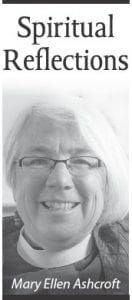In a course I taught at Holy Apostles, a largely Hmong Episcopal Church in St. Paul, we explored how any individual church can be part of the larger Church, while deeply rooted in its particular context. I opened the class with slides of different Anglican Churches— Pentecostal Anglicans in Nigeria, folks dancing their hearts out in the Anglican church in Haiti, a cathedral service with a large robed choir in England, Inuit worship spaces with sealskin altar décor in the Canadian Anglican church, a woman priest serving communion to the homeless in Boston, a group of acolytes swinging incense in a New York City Episcopal Church, an evangelical group preaching Jesus in Australia, a priest performing a same sex marriage in Minnesota, Maori Anglicans in a New Zealand drumming circle.
For three years I’ve been involved monthly with Holy Apostles. Although Episcopalian, their worship (very formal, largely in Hmong, and mostly performed by clergy) could hardly be more different from ours at Spirit of the Wilderness Episcopal (informal, often lay led, and in English). Yet these are both deeply contextual expressions of “church”— in this case the Anglican Church (of which Episcopal is the American name).
Some people find this range of “church” worrying, but it reveals the very heart of God, who chooses to be revealed in particular times and places. Of course, worship in Nigeria, India and Minnesota would vary widely—people, languages, and cultures are different. Christian theology of incarnation teaches that Jesus came in a particular time and place; earliest churches looked different depending on whether they were in Jerusalem or Antioch. And the fact that the message is meant to be taken far afield means that worship will vary from place to place.
Maybe this is best seen in Bible translation. Meant to be read in the language of the people, the urge to render scripture into different languages has meant that translators have had to immerse themselves in the culture and language of indigenous peoples. Perhaps ironically, this has helped preserve many largely oral languages and cultural customs that might have been lost through the evils of colonization. As Yale’s Lammin Sanneh argues, translation has often ended up affirming and sustaining the treasures of individual cultures.
How can local churches be faithful expressions of the message here and now? Great Anglican theologian Richard Hooker—who lived around the time of Queen Elizabeth I—argued against the Puritans who wanted to imitate the first century church. It can’t, because times have changed, he said. Instead we must “change to remain the same.”
“Changing to remain the same” demands we ask hard questions. “Why,” I asked a church historian friend, “do some denominations treat dancing and card playing as taboo when I can’t see anything in the Bible about them?”
“You’re right,” he said. “But at a particular time these were terrible vices that were destroying peoples’ lives. Our denomination took a stand on those evils then, and is unwilling to move on to new issues. Maybe we should be taking a stand against materialism or over-eating now.” But, he and I agreed, it’s easier to condemn behavior that others practice than to examine our own consciences.
The challenge, then, is to figure out how to “change to remain the same.” How do we become expressions of the good news in our particular time and place, holding onto the core message as those early followers did in proclaiming, “Jesus is Lord”? It’s harder to keep figuring out how to “change to remain the same” than it is to either remain stuck in an earlier cultural expression or to just forget the whole thing.
One of my goals on my sabbatical to South Africa this fall will be to look at how the church there has responded to this challenge. How have they “changed to remain the same,” sensitive to different cultural expressions (like, say, respect of ancestors) while being true to the faith?
People have complained about the “scandal of particularity”— that Christian faith teaches a God who came at a particular time to a particular place in Jesus. It’s not fair, they say, that God’s revelation was so local, so embedded in one time and place.
Yet that is how God continues to work in the world—Christ re-incarnated in us as we ‘change to remain the same’ to express the good news in our given context.
Each month a member of the Cook County Ministerium will offer Spiritual Reflections. This month’s contributor is Mary Ellen Ashcroft, Vicar of Spirit of the Wilderness Episcopal Church.



Loading Comments